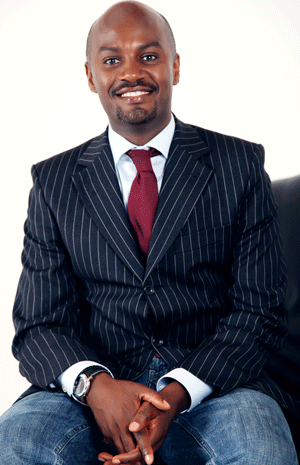How the documentary projects a picture of helplessness and how we can use its marketing lessons to portray a better one
The dust
has now settled on the documentary about Lord’s Resistance Army (LRA)
rebel leader, Joseph Kony. I was impressed by Invisible Children (IC’s)
marketing genius. Their ability to get an obscure cause and use
celebrities and social media to generate global attention to it is a
feat with few precedents.
The
documentary reflects persistent Western attitudes towards Africa and its
peoples. There is Jacob, an African (read black) child who has lost his
family members to a murderous rebel leader. Then comes Jason – white,
blonde and blue eyed – as the miraculous saviour. This script can be
found in nearly every novel, history book, research paper, fiction film,
speech and song by Western people about Africa. Always the problem in
Africa will be local and presented as some aberration; the solution will
be an external intervention i.e. by a white person.
There is Machine Gun Preacher
(2011), a fiction film based on the LRA. A retired alcoholic and
drug-using biker from Minnesota comes to Northern Uganda and South Sudan
upon converting to Christianity. He finds the children under constant
attack from the LRA and becomes the hero who leads armed raids to rescue
them. But this is one in a long line of movies and documentaries about
Africa.
The story of Idi Amin in the movie, The Last King of Scotland, is told through the eyes of a Scottish doctor living in Uganda. In the Constant Gardener, it is Tessa, the beautiful blonde activist who loses her life trying to save the people of Kenya from a harmful drug, Dypraxa, which is being tested on them by a powerful Western pharmaceutical company. In Blood Diamond,
it is a white female American journalist and humanitarian, Maddy Bowen,
who eventually saves Sierra Leone by exposing trade in conflict
diamonds in a newspaper article. (It was actually a Sierra Leonean
journalist, Sorius Samora, who filmed the war and exposed this evil. Why
did Hollywood omit this fact? Samora asked me not to say).
I can list
hundreds of examples of this characterisation. The point is that over
time, a common consciousness cultivated in the West has also captured
Africa that for every problem on our continent, a solution must be
sought from the West. For example, Russell’s documentary does not
address itself to Ugandans, the people who have suffered terror for 25
years, for a solution. He addresses it to the American Congress. It is
not that he ignores the role Ugandans can play to save themselves. He
does not even give it any consideration. I do not think it even crossed
his mind.
Our
absence from it shows that the documentary was done so that middle-class
youth in the US and Europe can find meaning in their lives – by feeling
that they are saving the world. I do not think Russell did all this
deliberately. He is simply a white kid who came to Africa, saw a problem
and felt he should go back home to find a solution. Russell as a
citizen of “the world” has learnt this lesson at home, his church, at
school and through the mass media. And he passes it on to his son – in
the documentary: there is “the other people” whom we need to save.
In many
ways, the documentary represents a cultural artefact – that the West is
noble, Africa is savage. It also underlines the major theme of Western
views of Africa – that problems on our continent are generated by local
conditions but need western solutions. Even where the problems are
caused by the West (as in the Constant Gardener or other
writings on imperialism) the solution remains with the West. This
presentation is seen as normal even though it depicts Africans as
incapable of self-initiative. Russell’s documentary drives this message
home by showing that it does not stop with him; it is a message he gives
to his son.
One can
clearly notice the absence of reflection in the documentary, a trait
common in all such movies, books and films. Russell asks his five-year
old son to mention the problem. Kony! And the solution: dad should go
capture him. In the entire documentary, the people addressed to offer a
solution are not Ugandan political, military or security leaders. They
are American politicians. It is like someone doing a documentary on
police violence, brutality and racial profiling in black ghettos in
America and calling on China for a solution all in complete disregard to
US institutions.
In Kony
2012 the documentary has images of white people in posh areas – whether
residential or office premises – enjoying the good life. These are
juxtaposed by images of Africans – the “invisible children” – in their
poverty, misery and mass suffering – victims of mass murder and neglect
(why?) sleeping on the floor in one large hall. In the background is a
comment by Russell: “If this happened for one night in America, it would
be on the cover of Newsweek” – suggesting that this sad story has not been covered by local media perhaps because they don’t care.
The Kony
story and the suffering children were front cover news and headlines in
the Uganda media when Russell was in Uganda in 2003, so much so that it
ceased to be news. It has been the most debated story on radio and
television talk-shows ever. And it has been a central issue in every
political campaign. Yet in regard to a Newsweek cover story, I see worse problems in America and no media coverage of them.
The lesson
from Kony 2012 is that there is a lot to learn from its production and
marketing for us to tell a better story about ourselves than let others
do it for us.


No comments:
Post a Comment